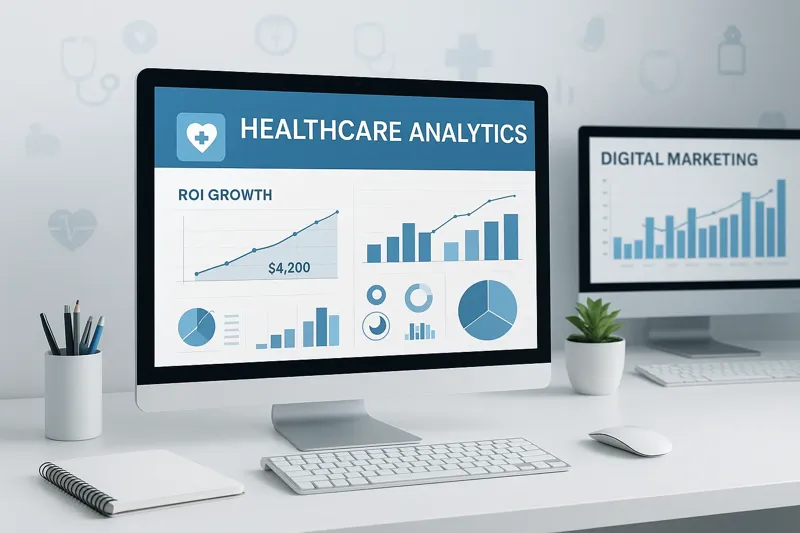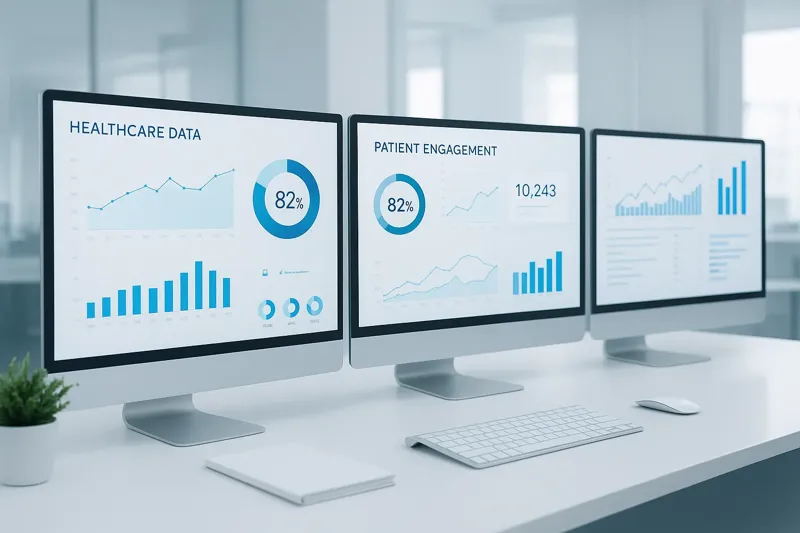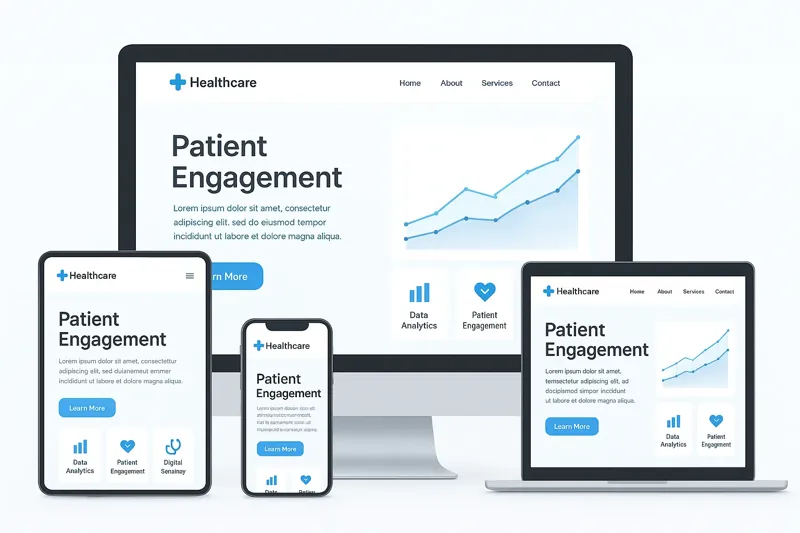Adapting to the New Era of B2B Marketing
B2B marketing is evolving rapidly with the convergence of advanced technologies, shifting buyer behaviors, and innovative strategies reshaping how brands engage, convert, and retain business customers. As digital-native buyers demand personalized, trustworthy, and insightful experiences, marketers must embrace trends that combine data, storytelling, and automation effectively. This article explores pivotal trends in B2B marketing that are not just buzzworthy but proven to deliver measurable results in 2023 and beyond, giving businesses actionable guidance to stay competitive and drive growth.
Key Facts on Future B2B Marketing Strategies
- In 2023 and beyond, video content, especially short-form videos, and AI-powered personalization are critical for successful B2B marketing.
- Email marketing remains most effective for nurturing relationships, with social media platforms like LinkedIn playing a crucial role in thought leadership.
- Data insights from data orchestration platforms and intent data enable precise account targeting and personalized messaging.
- Emerging tactics involve virtual environments like the industrial metaverse for relationship building and strategic innovation.
- Advanced analytics platforms and cross-channel integrations are key to improving pipeline quality, engagement, and ROI.
- Generative AI and machine learning revolutionize content creation and PPC strategy optimization, driving higher ROI.
- Data analytics underpins effective Account-Based Marketing (ABM), focusing on high-intent prospects and decision-makers.
- AI enhances campaign efficiency, capable of reducing launch times by 65% and boosting ROI by 270%.
- Best practices include privacy-first marketing, transparency, avoiding biases, and ethical AI use to build trust.
- Future trends include digital ecosystems, immersive environments like the metaverse, and increased AI use, with marketing budgets rising over 13% for 2024.
1. Embracing AI and Data-Driven Personalization for Precision Engagement
What are the current and emerging effective B2B marketing strategies for 2023 and beyond?
B2B marketing has evolved significantly, with a substantial shift towards content quality, AI assistance, and strategic digital engagement. In 2023 and going forward, successful strategies focus on high-impact video content, especially short-form videos, and leveraging AI tools to enhance content creation, SEO, and personalization.
Email remains the most effective channel for nurturing relationships, supplemented by social media platforms like LinkedIn, which is critical for thought leadership and targeted advertising. Data insights from tools such as data orchestration platforms and intent data inform more precise account targeting and personalized messaging.
Emerging tactics also involve the exploration of innovative virtual environments like the industrial metaverse for relationship-building and strategic innovation. Optimization of website conversion rates and strong event marketing—including webinars, in-person events, and hybrid formats—are vital for nurturing prospects and increasing brand visibility.
These strategies emphasize understanding the modern buyer’s journey, which involves longer sales cycles and more decision-makers. A holistic approach that combines educational content, strategic resource allocation, and visibility across multiple channels remains central to success.
What proven tactics and data-driven approaches drive success in B2B marketing?
Leading B2B marketers rely heavily on data-driven tactics to improve pipeline quality, engagement, and ROI. Utilization of advanced analytics platforms like Google Analytics and HubSpot enables the collection of actionable insights about buyer behavior and campaign performance.
Integrating cross-channel systems like Salesforce and Marketo streamlines messaging and allows for a unified customer view. Implementing account-based marketing (ABM) driven by firmographic, demographic, and behavioral data enables personalized campaigns tailored to high-value accounts.
Continuous experimentation through A/B testing, landing page optimization, and messaging refinement ensures campaigns are resonating and delivering results. Success metrics focus on reducing Customer Acquisition Cost (CAC), increasing Customer Lifetime Value (CLV), and demonstrating ROI through case studies.
These approaches create an ongoing cycle of data collection, analysis, and campaign refinement, leading to sustained success and scaling marketing efforts effectively.
How is AI transforming content marketing and personalization?
Generative AI and machine learning are revolutionizing how B2B brands produce content and optimize PPC strategies. AI-driven tools facilitate rapid content creation—including blog posts, white papers, and social media content—while maintaining consistency and brand voice.
AI also enhances PPC campaigns through features like Google's Smart Bidding, which has seen search interest increase by over 3,700%. These systems analyze vast datasets to optimize bid strategies in real time, resulting in heightened ROI.
Personalization is now driven by predictive analytics, which help segment audiences more precisely and deliver tailored content at exactly the right moment. Companies are harnessing AI to craft hyper-personalized messaging, from email campaigns to website experiences, which significantly boost engagement.
Artificial intelligence supports the creation of highly relevant, micro-tailored content—like ROI calculators or decision-making guides—that influence buyer actions faster and more effectively.
What is the role of data analytics in targeted ABM?
Data analytics underpin effective account-based marketing by providing detailed insights into target accounts and individual decision-makers. Utilizing intent data, firms can identify prospects actively researching solutions for their needs.
AI-enhanced analytics enable predictive segmentation, allowing marketers to prioritize high-intent audiences and customize outreach for maximum engagement.
By integrating data from multiple sources—CRM, social media, intent signals—marketers can develop a holistic view of their target accounts' behaviors and needs.
This leads to personalized, relevant messaging, decreasing wasted ad spend and shortening sales cycles. As a result, targeted ABM campaigns driven by robust analytics can generate higher conversion rates and better alignment between marketing efforts and sales outcomes.
How does AI improve campaign efficiency and ROI?
AI dramatically enhances campaign efficiency through automation and optimization. Studies show AI can reduce campaign launch times by 65%, increase performance by 30%, and lower infrastructure costs by 22%.
Brands employing AI agents report a 270% boost in ROI and experience a 6.6% increase in non-category purchases, demonstrating AI’s impact on bottom-line results.
AI-driven automation handles routine tasks such as lead scoring, nurturing, and data entry, freeing marketing and sales teams to focus on strategic activities.
Additionally, AI helps identify high-potential prospects early through intent data, enabling more precise targeting.
By continuously analyzing performance, AI systems can recommend adjustments in real time, ensuring campaigns remain optimized for maximum return.
What are best practices around privacy-first marketing and ethical AI use?
As data collection expands, respecting user privacy and ensuring transparency has become paramount. Regulations like GDPR and CCPA necessitate explicit consent and secure data handling practices.
Marketers must prioritize building trust by clearly communicating data usage policies, securing consent, and providing easy opt-out options.
Ethical AI use involves avoiding biases, ensuring fairness, and maintaining accountability for automated decisions.
Practicing transparency and adopting privacy-by-design principles helps sustain customer trust and aligns marketing strategies with regulatory standards.
What is hyper-personalization with AI-driven content and messaging?
Hyper-personalization leverages AI to deliver content that resonates at an individual level. AI analyzes behaviors, preferences, and intent signals to craft tailored messages across channels.
From personalized emails to dynamic website experiences, this micro-targeting increases engagement and conversion rates.
For example, AI can automatically adjust content recommendations based on real-time interactions or predict future needs to suggest relevant solutions.
This strategy ensures that prospects receive the right message at the right time, making every touchpoint more impactful.
How does data analytics integrate into targeted ABM?
Effective ABM depends on deep analytics to identify high-value accounts and decision-makers. Intent data helps prioritize accounts that are actively researching relevant solutions.
Advanced analytics enable the segmentation of accounts by likelihood to convert and potential lifetime value.
Integrating these insights with marketing automation ensures personalized outreach, content, and engagement strategies, increasing the chances of success.
In conclusion, embracing AI and data-driven approaches enables B2B marketers to engage prospects more precisely, improve campaign performance, and build lasting relationships based on trust and value. As technology continues to advance, integrating these tools ethically and strategically will be essential for sustained growth.
2. Leveraging Content Innovation and Social Platforms to Build Trust and Authority
 The landscape of B2B marketing is rapidly transforming, driven by innovative content strategies and the strategic use of social platforms. Among these, podcasts and audio content are gaining prominence as mainstream channels. Search interest for 'Spotify Podcasts' has soared by 7,400% over five years, reflecting a significant shift toward audio as a preferred medium for engaging audiences. Businesses are increasingly allocating marketing budgets to podcasting, recognizing its effectiveness in thought leadership, storytelling, and establishing a personal connection with niche audiences.
The landscape of B2B marketing is rapidly transforming, driven by innovative content strategies and the strategic use of social platforms. Among these, podcasts and audio content are gaining prominence as mainstream channels. Search interest for 'Spotify Podcasts' has soared by 7,400% over five years, reflecting a significant shift toward audio as a preferred medium for engaging audiences. Businesses are increasingly allocating marketing budgets to podcasting, recognizing its effectiveness in thought leadership, storytelling, and establishing a personal connection with niche audiences.
Simultaneously, LinkedIn is experiencing a renaissance as the go-to platform for B2B marketing. The platform now boasts over 1.4 billion visitors as of May 2025, with new features like video posts, AI-driven analytics, and connected TV (CTV) ads enhancing its appeal. LinkedIn's focus on video content, influencer collaborations, and targeted advertising helps brands foster credibility and thought leadership, leading to a reported 229% return on investment (ROI) for social media efforts.
Video content continues to dominate across all platforms. Its importance is underscored by the fact that 92% of B2B marketers consider video vital for engagement. From short-form clips on social media to longer, in-depth webinars and case studies, video offers a dynamic way to demonstrate products, share insights, and humanize brands. The ROI on short, personalized videos is notably high, with many companies experiencing increased brand visibility and stakeholder engagement.
Storytelling and authentic narratives are increasingly replacing traditional sales pitches. Search interest in 'Storybrand' has climbed by 8,000% over five years, highlighting the trend toward emotional, relatable stories that build trust. Producing compelling narratives helps B2B brands stand out by emphasizing company values, innovation, and customer success stories.
Real-time engagement through in-person events, webinars, and community-building initiatives remains critical. Despite the digital shift, face-to-face interactions foster trust and loyalty, especially when integrated with digital channels. Events like webinars and conferences facilitate influence and thought leadership while creating meaningful relationships with decision-makers.
Influencer marketing is evolving with a focus on micro-influencers—trusted niche community leaders—whose smaller followings deliver higher engagement and authenticity. Companies leverage this trend for more targeted outreach, co-created content, and niche brand positioning.
To maximize outreach, firms are leveraging short-form videos and repurposing content across platforms like YouTube, Facebook, and TikTok. This approach ensures consistent messaging while capitalizing on high-engagement formats. The search for 'content repurposing' has increased by 500% over five years, underscoring its significance in efficient content marketing.
The convergence of these strategies—audio, video, storytelling, live events, and influencer collaborations—positions brands to build trust and authority effectively in a crowded B2B market. As digital engagement continues to evolve, focusing on authentic storytelling, innovative formats, and personalized content remains essential for sustained growth and market leadership.
| Content Strategy | Platform/Format | Impact | Additional Insights |
|---|---|---|---|
| Podcasts & Audio | Spotify, other platforms | Establish thought leadership, enhance engagement | Search interest up 7,400% in 5 years |
| Video Content | LinkedIn, YouTube, TikTok | Boost brand visibility, ROI, and engagement | 92% of marketers see video as important |
| Storytelling & Narratives | All digital channels | Build trust, emotional connection | 'Storybrand' searches up 8,000% |
| Live Events & Webinars | In-person, hybrid | Foster loyalty, influence | Face-to-face interactions remain key |
| Influencer Marketing | Micro-influencers | Reach niche audiences, authenticity | High trust and engagement, smaller followings |
| Content Repurposing | All platforms | Maximize content value, increase reach | Search interest up 500% over 5 years |
Understanding and implementing these evolving content strategies and platform uses are essential for B2B brands aiming to stand out through trust-building, storytelling, and authentic engagement. As competition intensifies, innovative use of multimedia and community-focused initiatives will define marketing success in 2025 and beyond.
Strategic Approaches Elevating B2B Marketing Impact

What role do strategic approaches like Account-Based Marketing and micro-influencers play in B2B marketing?
In the evolving landscape of B2B marketing, strategic approaches such as Account-Based Marketing (ABM) and the use of micro-influencers are fundamentally transforming how brands engage with their audiences. ABM involves targeting specific high-value accounts with tailored marketing efforts, allowing organizations to focus resources on prospects most likely to convert. This approach fosters deeper relationships and increases the relevance of messaging, leading to higher engagement and conversion rates.
Micro-influencers complement ABM by adding authenticity and niche authority to campaigns. These influencers, with smaller but highly engaged followings, are often seen as more trustworthy and relatable, especially within specialized industries. They help disseminate targeted content that resonates with decision-makers and influencers within the targeted accounts.
Combining ABM with influencer collaborations enables brands to create co-branded content that aligns with the interests and needs of specific accounts. This synergy enhances visibility in complex decision-making environments where multiple stakeholders are involved.
For example, a tech company might partner with a micro-influencer respected in the cybersecurity field to create educational content tailored to a key enterprise account. Such efforts increase credibility, foster trust, and enhance the likelihood of closing deals.
Overall, these approaches facilitate highly personalized engagement, help build long-term relationships, and ultimately drive lead generation and revenue growth. As B2B markets become more sophisticated, integrating ABM and influencer marketing is proving to be an effective strategy for gaining competitive advantage.
For further insights, search for "Account-Based Marketing and micro-influencers in B2B 2024" to explore the latest trends and case studies.
Best Practices for High-Tech B2B Brands
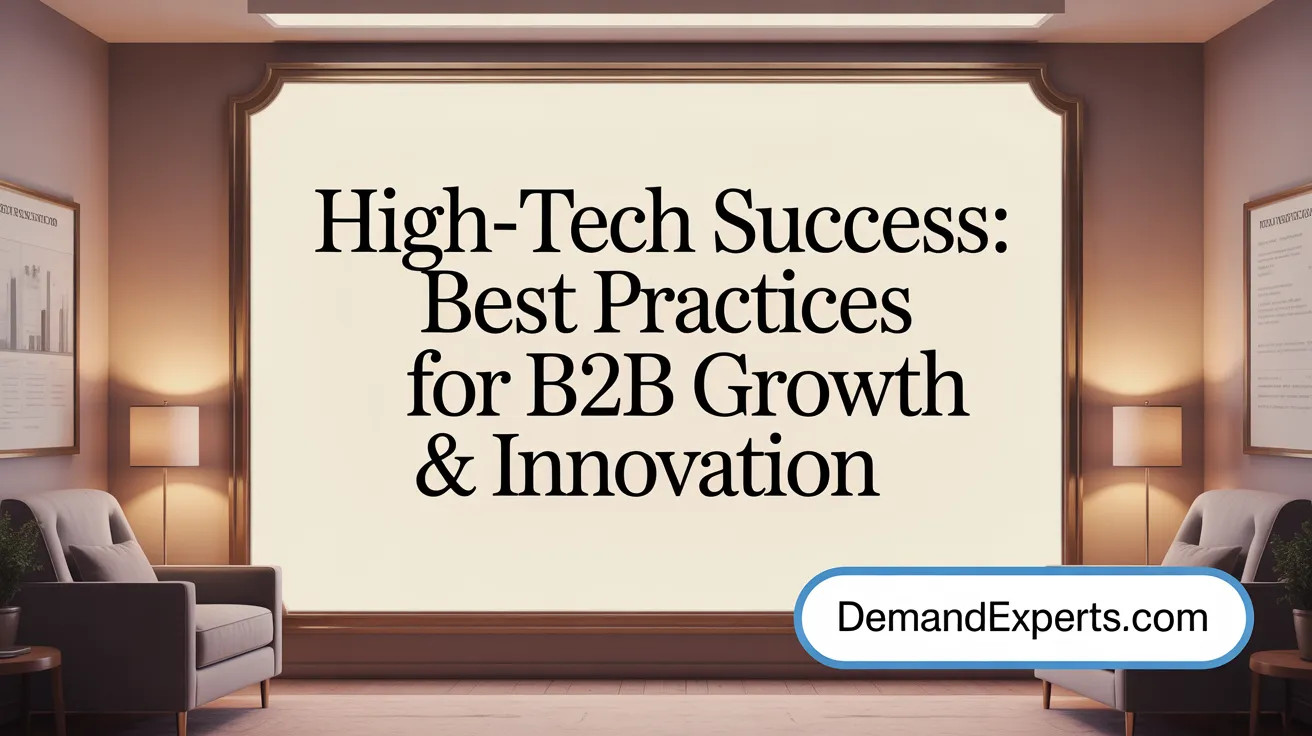
What best practices should high-tech B2B brands follow to enhance their marketing efforts?
High-tech B2B brands need to adopt a comprehensive, multi-channel marketing strategy that focuses on personalization and targeted outreach. This includes leveraging account-based marketing (ABM), which allows businesses to zero in on high-value prospects with tailored messaging and experiences.
Content marketing plays a crucial role in establishing credibility and thought leadership. Successful brands utilize various formats such as webinars, podcasts, case studies, and short videos, which effectively engage decision-makers and provide valuable insights. Video content, especially short-form clips, yields high ROI by capturing attention quickly and fostering engagement.
Data-driven strategies are integral to modern B2B marketing. Utilizing search engine optimization (SEO), intent data, and marketing automation tools enables brands to optimize their outreach efforts. These technologies help in precise segmentation, personalized messaging, and efficient campaign management, aligning marketing activities with sales goals.
Social media presence, particularly on LinkedIn and Twitter, is vital for brand visibility and engagement. Engaging with niche communities and collaborating with influencers helps to build trust and authenticity. Influencer partnerships and grassroots content contribute to a more humanized brand image.
Finally, storytelling and thought leadership are fundamental to differentiate in a competitive landscape. Demonstrating value through customer success stories, ROI-focused content, and insightful thought leadership reinforces brand loyalty. Humanizing the brand through authentic narratives fosters stronger relationships, accelerates trust, and shortens sales cycles.
By integrating these approaches—multichannel outreach, engaging content, data utilization, active social media engagement, and authentic storytelling—high-tech B2B brands can position themselves for sustained growth and competitive advantage in 2024 and beyond.
Navigating Data Privacy and AI to Maximize Marketing Effectiveness
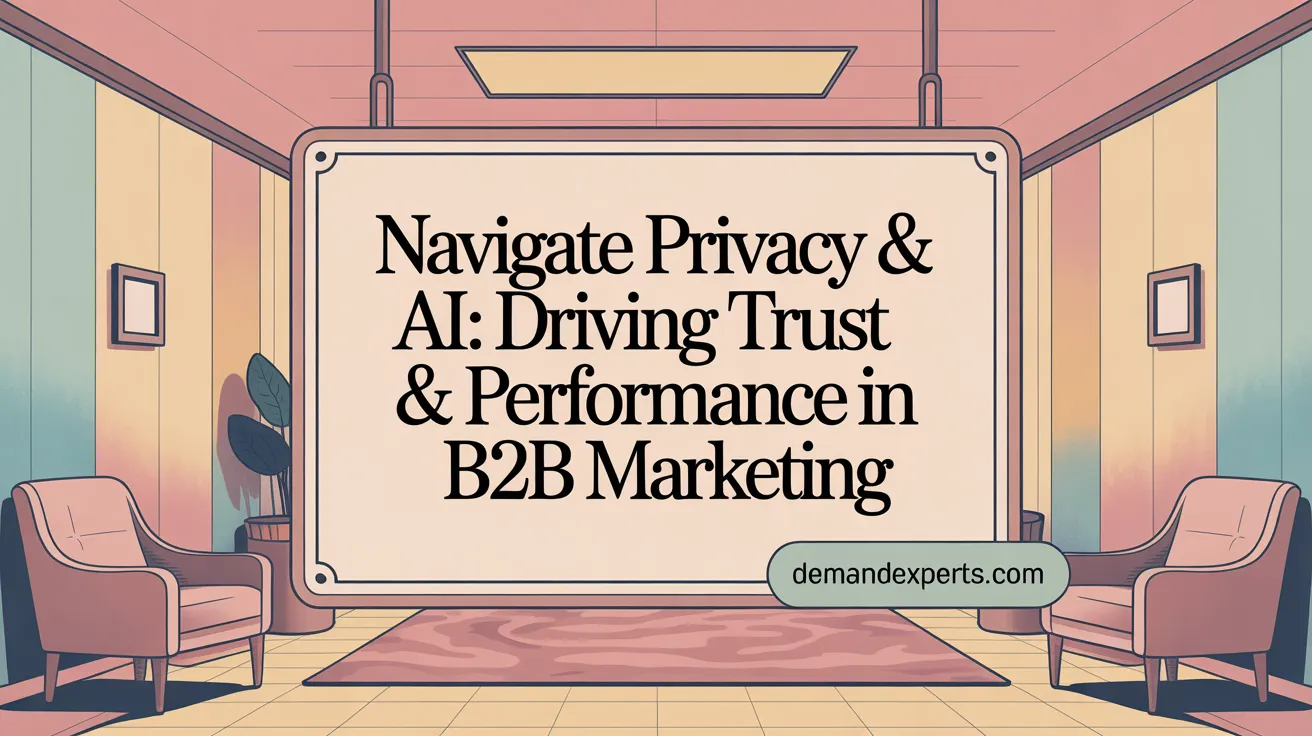
How do data privacy and artificial intelligence impact the effectiveness of B2B marketing?
Data privacy regulations such as GDPR (General Data Protection Regulation) in Europe and CCPA (California Consumer Privacy Act) in the United States play a crucial role in shaping B2B marketing strategies. These laws necessitate transparent and lawful data collection and usage practices, which can limit traditional methods of targeting and personalization. However, they also foster a level of trust and credibility with customers who increasingly value privacy and security.
Simultaneously, advancements in artificial intelligence (AI) are transforming how businesses personalize and optimize marketing campaigns. AI enables sophisticated segmentation, predictive analytics, and personalized content delivery at scale. Technologies like federated learning and differential privacy allow marketers to utilize AI-driven insights while respecting user privacy, enabling targeted messaging without risking data breaches.
Despite these opportunities, there are challenges. Ethical considerations surrounding AI, such as bias, transparency, and consent, are gaining prominence. Unethical use of AI can damage brand reputation and lead to regulatory penalties. Many organizations are now emphasizing the importance of implementing transparent AI systems that explain how customer data is used.
Building trust through secure and transparent data practices is essential. This includes clear communication about data usage, obtaining explicit consent, and implementing robust cybersecurity measures. These principles help maintain customer confidence and loyalty, which are vital in an environment where privacy concerns are heightened.
Maximizing the benefits of AI in marketing involves balancing innovation with compliance. Combining privacy-enhancing technologies with ethical AI practices allows companies to deliver personalized, relevant experiences while safeguarding customer data. This approach not only improves campaign effectiveness but also reinforces a company’s reputation.
Ultimately, effective navigation of data privacy and AI ethics ensures that B2B marketing remains compliant, trustworthy, and impactful. Companies that successfully integrate privacy-conscious AI strategies can differentiate themselves in a competitive marketplace, fostering long-term customer relationships and sustainable growth.
Actionable Insights to Enhance B2B Marketing Performance
What actionable insights and practical guidance can improve B2B marketing efforts?
To boost B2B marketing effectiveness, companies should place a strong emphasis on centralizing and unifying customer data. By creating comprehensive, real-time customer profiles, organizations can tailor their campaigns with higher precision. This means integrating data from multiple sources—CRM systems, social media, website analytics, and intent data—to gain a holistic view of each prospect and customer.
Leveraging AI, machine learning, and advanced analytics plays a crucial role in identifying high-potential audiences. These tools help predict which leads are most likely to convert, allowing marketers to prioritize efforts and allocate resources efficiently. AI-driven insights also facilitate dynamic content delivery, personalized messaging, and optimizing marketing channels based on ongoing performance data.
Continuous testing and optimization are vital components of a successful B2B marketing strategy. Techniques like A/B testing, multivariate experiments, and message refinement enable marketers to understand what resonates best with their target audiences. Regularly analyzing campaign metrics—such as engagement rates, conversion rates, and return on investment—helps inform data-driven adjustments.
Integrating cross-channel data ensures that all marketing touchpoints—email, social media, webinars, events—are connected, providing a seamless customer experience. This cohesion not only improves attribution accuracy but also enhances the overall customer journey, making marketing efforts more consistent and effective.
Finally, focusing on data-driven audience segmentation allows for more targeted campaigns, reducing wasted spend and increasing engagement. Measuring these efforts with clear KPIs ensures that strategies remain aligned with business goals. By adopting a proactive, data-centric approach that emphasizes quality insights, continuous testing, and cross-channel integration, B2B marketers can significantly improve their campaign results and drive sustainable growth.
The Future of B2B Marketing: Trends and Prospects

What is the future outlook of B2B marketing and what insights are anticipated from upcoming reports?
The landscape of B2B marketing is rapidly evolving, with a clear shift towards more digital, personalized, and data-driven approaches. AI and automation are set to become central to these strategies, enabling marketers to deliver highly tailored experiences, automate routine tasks, and generate predictive insights that optimize decision-making.
One of the notable trends is the increasing emphasis on first-party data collection and privacy compliance. As regulations like GDPR and CCPA tighten, trust and transparency are becoming more critical. Businesses are focusing on secure data management and transparent practices to build stronger relationships with their audiences.
Content continues to be vital, with a move towards interactive formats such as short-form videos, webinars, and high-quality research reports that enhance engagement and showcase thought leadership. Similarly, artificial environments like the industrial metaverse are beginning to take hold, offering virtual ecosystems where transactions, collaborations, and relationships can flourish in immersive digital spaces.
Spending on marketing technology and advertising continues to rise. Companies plan to invest more in martech, with projections indicating an increase of over 13% in budgets for 2024. This growth supports advanced AI tools, sophisticated account-based marketing platforms, and comprehensive data analytics systems.
Upcoming industry reports are expected to shed more light on changing buyer behaviors, especially as digital-first decision-makers demand more insightful and high-value content. They will also explore the effectiveness of various channels, including social media, virtual events, and niche digital advertising. The ongoing integration of AI in sequence—like generative AI for content creation and predictive analytics for segmentation—will shape future marketing practices.
In summary, the future of B2B marketing lies in embracing digital ecosystems, leveraging AI-driven personalization, respecting privacy, and fostering trusted relationships through innovative content and immersive technologies. As industry leaders and researchers continue their insights, we can expect detailed forecasts on technology adoption, buyer expectations, and the strategic repositioning necessary to thrive in this dynamic environment.
Staying Ahead with Proven B2B Marketing Trends
As B2B marketing continues to transform amid technological innovation and changing buyer expectations, embracing proven trends like AI-driven personalization, data-centric strategies, and authentic content creation is critical. Leveraging platforms such as LinkedIn with advanced tools, focusing on Account-Based Marketing, and utilizing micro-influencers creates a more engaging and efficient buyer journey. At the same time, adherence to privacy regulations combined with strategic AI integration ensures compliance and builds trust. Marketers who prioritize continuous learning, testing, and alignment across teams will unlock superior ROI and position their brands for sustained growth in an increasingly competitive landscape.
References
- 10 B2B Marketing Trends For 2024-2027 - Exploding Topics
- Guide to B2B marketing: Strategies, trends, and KPIs - eMarketer
- B2B Marketing Trends for 2025: Interactive Report & Insights
- Top 10 B2B Marketing Trends for 2025 - Goodway Group
- 5 hot B2B marketing trends - SmartBrief
- 2025 High Tech B2B Marketing Trends - AOR, Inc.
- 10 B2B Marketing Trends to Help You Win Right Now - Column Five
- The Top 5 B2B Marketing Trends for 2025: What You Need to Know
- 17 Emerging B2B Marketing Trends To Watch For In 2025 - Forbes
- B2B Content Marketing Benchmarks, Budgets, and Trends: Outlook ...
Adapting to the New Era of B2B Marketing
B2B marketing is evolving rapidly with the convergence of advanced technologies, shifting buyer behaviors, and innovative strategies reshaping how brands engage, convert, and retain business customers. As digital-native buyers demand personalized, trustworthy, and insightful experiences, marketers must embrace trends that combine data, storytelling, and automation effectively. This article explores pivotal trends in B2B marketing that are not just buzzworthy but proven to deliver measurable results in 2023 and beyond, giving businesses actionable guidance to stay competitive and drive growth.
Key Facts on Future B2B Marketing Strategies
- In 2023 and beyond, video content, especially short-form videos, and AI-powered personalization are critical for successful B2B marketing.
- Email marketing remains most effective for nurturing relationships, with social media platforms like LinkedIn playing a crucial role in thought leadership.
- Data insights from data orchestration platforms and intent data enable precise account targeting and personalized messaging.
- Emerging tactics involve virtual environments like the industrial metaverse for relationship building and strategic innovation.
- Advanced analytics platforms and cross-channel integrations are key to improving pipeline quality, engagement, and ROI.
- Generative AI and machine learning revolutionize content creation and PPC strategy optimization, driving higher ROI.
- Data analytics underpins effective Account-Based Marketing (ABM), focusing on high-intent prospects and decision-makers.
- AI enhances campaign efficiency, capable of reducing launch times by 65% and boosting ROI by 270%.
- Best practices include privacy-first marketing, transparency, avoiding biases, and ethical AI use to build trust.
- Future trends include digital ecosystems, immersive environments like the metaverse, and increased AI use, with marketing budgets rising over 13% for 2024.
1. Embracing AI and Data-Driven Personalization for Precision Engagement
What are the current and emerging effective B2B marketing strategies for 2023 and beyond?
B2B marketing has evolved significantly, with a substantial shift towards content quality, AI assistance, and strategic digital engagement. In 2023 and going forward, successful strategies focus on high-impact video content, especially short-form videos, and leveraging AI tools to enhance content creation, SEO, and personalization.
Email remains the most effective channel for nurturing relationships, supplemented by social media platforms like LinkedIn, which is critical for thought leadership and targeted advertising. Data insights from tools such as data orchestration platforms and intent data inform more precise account targeting and personalized messaging.
Emerging tactics also involve the exploration of innovative virtual environments like the industrial metaverse for relationship-building and strategic innovation. Optimization of website conversion rates and strong event marketing—including webinars, in-person events, and hybrid formats—are vital for nurturing prospects and increasing brand visibility.
These strategies emphasize understanding the modern buyer’s journey, which involves longer sales cycles and more decision-makers. A holistic approach that combines educational content, strategic resource allocation, and visibility across multiple channels remains central to success.
What proven tactics and data-driven approaches drive success in B2B marketing?
Leading B2B marketers rely heavily on data-driven tactics to improve pipeline quality, engagement, and ROI. Utilization of advanced analytics platforms like Google Analytics and HubSpot enables the collection of actionable insights about buyer behavior and campaign performance.
Integrating cross-channel systems like Salesforce and Marketo streamlines messaging and allows for a unified customer view. Implementing account-based marketing (ABM) driven by firmographic, demographic, and behavioral data enables personalized campaigns tailored to high-value accounts.
Continuous experimentation through A/B testing, landing page optimization, and messaging refinement ensures campaigns are resonating and delivering results. Success metrics focus on reducing Customer Acquisition Cost (CAC), increasing Customer Lifetime Value (CLV), and demonstrating ROI through case studies.
These approaches create an ongoing cycle of data collection, analysis, and campaign refinement, leading to sustained success and scaling marketing efforts effectively.
How is AI transforming content marketing and personalization?
Generative AI and machine learning are revolutionizing how B2B brands produce content and optimize PPC strategies. AI-driven tools facilitate rapid content creation—including blog posts, white papers, and social media content—while maintaining consistency and brand voice.
AI also enhances PPC campaigns through features like Google's Smart Bidding, which has seen search interest increase by over 3,700%. These systems analyze vast datasets to optimize bid strategies in real time, resulting in heightened ROI.
Personalization is now driven by predictive analytics, which help segment audiences more precisely and deliver tailored content at exactly the right moment. Companies are harnessing AI to craft hyper-personalized messaging, from email campaigns to website experiences, which significantly boost engagement.
Artificial intelligence supports the creation of highly relevant, micro-tailored content—like ROI calculators or decision-making guides—that influence buyer actions faster and more effectively.
What is the role of data analytics in targeted ABM?
Data analytics underpin effective account-based marketing by providing detailed insights into target accounts and individual decision-makers. Utilizing intent data, firms can identify prospects actively researching solutions for their needs.
AI-enhanced analytics enable predictive segmentation, allowing marketers to prioritize high-intent audiences and customize outreach for maximum engagement.
By integrating data from multiple sources—CRM, social media, intent signals—marketers can develop a holistic view of their target accounts' behaviors and needs.
This leads to personalized, relevant messaging, decreasing wasted ad spend and shortening sales cycles. As a result, targeted ABM campaigns driven by robust analytics can generate higher conversion rates and better alignment between marketing efforts and sales outcomes.
How does AI improve campaign efficiency and ROI?
AI dramatically enhances campaign efficiency through automation and optimization. Studies show AI can reduce campaign launch times by 65%, increase performance by 30%, and lower infrastructure costs by 22%.
Brands employing AI agents report a 270% boost in ROI and experience a 6.6% increase in non-category purchases, demonstrating AI’s impact on bottom-line results.
AI-driven automation handles routine tasks such as lead scoring, nurturing, and data entry, freeing marketing and sales teams to focus on strategic activities.
Additionally, AI helps identify high-potential prospects early through intent data, enabling more precise targeting.
By continuously analyzing performance, AI systems can recommend adjustments in real time, ensuring campaigns remain optimized for maximum return.
What are best practices around privacy-first marketing and ethical AI use?
As data collection expands, respecting user privacy and ensuring transparency has become paramount. Regulations like GDPR and CCPA necessitate explicit consent and secure data handling practices.
Marketers must prioritize building trust by clearly communicating data usage policies, securing consent, and providing easy opt-out options.
Ethical AI use involves avoiding biases, ensuring fairness, and maintaining accountability for automated decisions.
Practicing transparency and adopting privacy-by-design principles helps sustain customer trust and aligns marketing strategies with regulatory standards.
What is hyper-personalization with AI-driven content and messaging?
Hyper-personalization leverages AI to deliver content that resonates at an individual level. AI analyzes behaviors, preferences, and intent signals to craft tailored messages across channels.
From personalized emails to dynamic website experiences, this micro-targeting increases engagement and conversion rates.
For example, AI can automatically adjust content recommendations based on real-time interactions or predict future needs to suggest relevant solutions.
This strategy ensures that prospects receive the right message at the right time, making every touchpoint more impactful.
How does data analytics integrate into targeted ABM?
Effective ABM depends on deep analytics to identify high-value accounts and decision-makers. Intent data helps prioritize accounts that are actively researching relevant solutions.
Advanced analytics enable the segmentation of accounts by likelihood to convert and potential lifetime value.
Integrating these insights with marketing automation ensures personalized outreach, content, and engagement strategies, increasing the chances of success.
In conclusion, embracing AI and data-driven approaches enables B2B marketers to engage prospects more precisely, improve campaign performance, and build lasting relationships based on trust and value. As technology continues to advance, integrating these tools ethically and strategically will be essential for sustained growth.
2. Leveraging Content Innovation and Social Platforms to Build Trust and Authority
 The landscape of B2B marketing is rapidly transforming, driven by innovative content strategies and the strategic use of social platforms. Among these, podcasts and audio content are gaining prominence as mainstream channels. Search interest for 'Spotify Podcasts' has soared by 7,400% over five years, reflecting a significant shift toward audio as a preferred medium for engaging audiences. Businesses are increasingly allocating marketing budgets to podcasting, recognizing its effectiveness in thought leadership, storytelling, and establishing a personal connection with niche audiences.
The landscape of B2B marketing is rapidly transforming, driven by innovative content strategies and the strategic use of social platforms. Among these, podcasts and audio content are gaining prominence as mainstream channels. Search interest for 'Spotify Podcasts' has soared by 7,400% over five years, reflecting a significant shift toward audio as a preferred medium for engaging audiences. Businesses are increasingly allocating marketing budgets to podcasting, recognizing its effectiveness in thought leadership, storytelling, and establishing a personal connection with niche audiences.
Simultaneously, LinkedIn is experiencing a renaissance as the go-to platform for B2B marketing. The platform now boasts over 1.4 billion visitors as of May 2025, with new features like video posts, AI-driven analytics, and connected TV (CTV) ads enhancing its appeal. LinkedIn's focus on video content, influencer collaborations, and targeted advertising helps brands foster credibility and thought leadership, leading to a reported 229% return on investment (ROI) for social media efforts.
Video content continues to dominate across all platforms. Its importance is underscored by the fact that 92% of B2B marketers consider video vital for engagement. From short-form clips on social media to longer, in-depth webinars and case studies, video offers a dynamic way to demonstrate products, share insights, and humanize brands. The ROI on short, personalized videos is notably high, with many companies experiencing increased brand visibility and stakeholder engagement.
Storytelling and authentic narratives are increasingly replacing traditional sales pitches. Search interest in 'Storybrand' has climbed by 8,000% over five years, highlighting the trend toward emotional, relatable stories that build trust. Producing compelling narratives helps B2B brands stand out by emphasizing company values, innovation, and customer success stories.
Real-time engagement through in-person events, webinars, and community-building initiatives remains critical. Despite the digital shift, face-to-face interactions foster trust and loyalty, especially when integrated with digital channels. Events like webinars and conferences facilitate influence and thought leadership while creating meaningful relationships with decision-makers.
Influencer marketing is evolving with a focus on micro-influencers—trusted niche community leaders—whose smaller followings deliver higher engagement and authenticity. Companies leverage this trend for more targeted outreach, co-created content, and niche brand positioning.
To maximize outreach, firms are leveraging short-form videos and repurposing content across platforms like YouTube, Facebook, and TikTok. This approach ensures consistent messaging while capitalizing on high-engagement formats. The search for 'content repurposing' has increased by 500% over five years, underscoring its significance in efficient content marketing.
The convergence of these strategies—audio, video, storytelling, live events, and influencer collaborations—positions brands to build trust and authority effectively in a crowded B2B market. As digital engagement continues to evolve, focusing on authentic storytelling, innovative formats, and personalized content remains essential for sustained growth and market leadership.
| Content Strategy | Platform/Format | Impact | Additional Insights |
|---|---|---|---|
| Podcasts & Audio | Spotify, other platforms | Establish thought leadership, enhance engagement | Search interest up 7,400% in 5 years |
| Video Content | LinkedIn, YouTube, TikTok | Boost brand visibility, ROI, and engagement | 92% of marketers see video as important |
| Storytelling & Narratives | All digital channels | Build trust, emotional connection | 'Storybrand' searches up 8,000% |
| Live Events & Webinars | In-person, hybrid | Foster loyalty, influence | Face-to-face interactions remain key |
| Influencer Marketing | Micro-influencers | Reach niche audiences, authenticity | High trust and engagement, smaller followings |
| Content Repurposing | All platforms | Maximize content value, increase reach | Search interest up 500% over 5 years |
Understanding and implementing these evolving content strategies and platform uses are essential for B2B brands aiming to stand out through trust-building, storytelling, and authentic engagement. As competition intensifies, innovative use of multimedia and community-focused initiatives will define marketing success in 2025 and beyond.
Strategic Approaches Elevating B2B Marketing Impact

What role do strategic approaches like Account-Based Marketing and micro-influencers play in B2B marketing?
In the evolving landscape of B2B marketing, strategic approaches such as Account-Based Marketing (ABM) and the use of micro-influencers are fundamentally transforming how brands engage with their audiences. ABM involves targeting specific high-value accounts with tailored marketing efforts, allowing organizations to focus resources on prospects most likely to convert. This approach fosters deeper relationships and increases the relevance of messaging, leading to higher engagement and conversion rates.
Micro-influencers complement ABM by adding authenticity and niche authority to campaigns. These influencers, with smaller but highly engaged followings, are often seen as more trustworthy and relatable, especially within specialized industries. They help disseminate targeted content that resonates with decision-makers and influencers within the targeted accounts.
Combining ABM with influencer collaborations enables brands to create co-branded content that aligns with the interests and needs of specific accounts. This synergy enhances visibility in complex decision-making environments where multiple stakeholders are involved.
For example, a tech company might partner with a micro-influencer respected in the cybersecurity field to create educational content tailored to a key enterprise account. Such efforts increase credibility, foster trust, and enhance the likelihood of closing deals.
Overall, these approaches facilitate highly personalized engagement, help build long-term relationships, and ultimately drive lead generation and revenue growth. As B2B markets become more sophisticated, integrating ABM and influencer marketing is proving to be an effective strategy for gaining competitive advantage.
For further insights, search for "Account-Based Marketing and micro-influencers in B2B 2024" to explore the latest trends and case studies.
Best Practices for High-Tech B2B Brands

What best practices should high-tech B2B brands follow to enhance their marketing efforts?
High-tech B2B brands need to adopt a comprehensive, multi-channel marketing strategy that focuses on personalization and targeted outreach. This includes leveraging account-based marketing (ABM), which allows businesses to zero in on high-value prospects with tailored messaging and experiences.
Content marketing plays a crucial role in establishing credibility and thought leadership. Successful brands utilize various formats such as webinars, podcasts, case studies, and short videos, which effectively engage decision-makers and provide valuable insights. Video content, especially short-form clips, yields high ROI by capturing attention quickly and fostering engagement.
Data-driven strategies are integral to modern B2B marketing. Utilizing search engine optimization (SEO), intent data, and marketing automation tools enables brands to optimize their outreach efforts. These technologies help in precise segmentation, personalized messaging, and efficient campaign management, aligning marketing activities with sales goals.
Social media presence, particularly on LinkedIn and Twitter, is vital for brand visibility and engagement. Engaging with niche communities and collaborating with influencers helps to build trust and authenticity. Influencer partnerships and grassroots content contribute to a more humanized brand image.
Finally, storytelling and thought leadership are fundamental to differentiate in a competitive landscape. Demonstrating value through customer success stories, ROI-focused content, and insightful thought leadership reinforces brand loyalty. Humanizing the brand through authentic narratives fosters stronger relationships, accelerates trust, and shortens sales cycles.
By integrating these approaches—multichannel outreach, engaging content, data utilization, active social media engagement, and authentic storytelling—high-tech B2B brands can position themselves for sustained growth and competitive advantage in 2024 and beyond.
Navigating Data Privacy and AI to Maximize Marketing Effectiveness

How do data privacy and artificial intelligence impact the effectiveness of B2B marketing?
Data privacy regulations such as GDPR (General Data Protection Regulation) in Europe and CCPA (California Consumer Privacy Act) in the United States play a crucial role in shaping B2B marketing strategies. These laws necessitate transparent and lawful data collection and usage practices, which can limit traditional methods of targeting and personalization. However, they also foster a level of trust and credibility with customers who increasingly value privacy and security.
Simultaneously, advancements in artificial intelligence (AI) are transforming how businesses personalize and optimize marketing campaigns. AI enables sophisticated segmentation, predictive analytics, and personalized content delivery at scale. Technologies like federated learning and differential privacy allow marketers to utilize AI-driven insights while respecting user privacy, enabling targeted messaging without risking data breaches.
Despite these opportunities, there are challenges. Ethical considerations surrounding AI, such as bias, transparency, and consent, are gaining prominence. Unethical use of AI can damage brand reputation and lead to regulatory penalties. Many organizations are now emphasizing the importance of implementing transparent AI systems that explain how customer data is used.
Building trust through secure and transparent data practices is essential. This includes clear communication about data usage, obtaining explicit consent, and implementing robust cybersecurity measures. These principles help maintain customer confidence and loyalty, which are vital in an environment where privacy concerns are heightened.
Maximizing the benefits of AI in marketing involves balancing innovation with compliance. Combining privacy-enhancing technologies with ethical AI practices allows companies to deliver personalized, relevant experiences while safeguarding customer data. This approach not only improves campaign effectiveness but also reinforces a company’s reputation.
Ultimately, effective navigation of data privacy and AI ethics ensures that B2B marketing remains compliant, trustworthy, and impactful. Companies that successfully integrate privacy-conscious AI strategies can differentiate themselves in a competitive marketplace, fostering long-term customer relationships and sustainable growth.
Actionable Insights to Enhance B2B Marketing Performance
What actionable insights and practical guidance can improve B2B marketing efforts?
To boost B2B marketing effectiveness, companies should place a strong emphasis on centralizing and unifying customer data. By creating comprehensive, real-time customer profiles, organizations can tailor their campaigns with higher precision. This means integrating data from multiple sources—CRM systems, social media, website analytics, and intent data—to gain a holistic view of each prospect and customer.
Leveraging AI, machine learning, and advanced analytics plays a crucial role in identifying high-potential audiences. These tools help predict which leads are most likely to convert, allowing marketers to prioritize efforts and allocate resources efficiently. AI-driven insights also facilitate dynamic content delivery, personalized messaging, and optimizing marketing channels based on ongoing performance data.
Continuous testing and optimization are vital components of a successful B2B marketing strategy. Techniques like A/B testing, multivariate experiments, and message refinement enable marketers to understand what resonates best with their target audiences. Regularly analyzing campaign metrics—such as engagement rates, conversion rates, and return on investment—helps inform data-driven adjustments.
Integrating cross-channel data ensures that all marketing touchpoints—email, social media, webinars, events—are connected, providing a seamless customer experience. This cohesion not only improves attribution accuracy but also enhances the overall customer journey, making marketing efforts more consistent and effective.
Finally, focusing on data-driven audience segmentation allows for more targeted campaigns, reducing wasted spend and increasing engagement. Measuring these efforts with clear KPIs ensures that strategies remain aligned with business goals. By adopting a proactive, data-centric approach that emphasizes quality insights, continuous testing, and cross-channel integration, B2B marketers can significantly improve their campaign results and drive sustainable growth.
The Future of B2B Marketing: Trends and Prospects

What is the future outlook of B2B marketing and what insights are anticipated from upcoming reports?
The landscape of B2B marketing is rapidly evolving, with a clear shift towards more digital, personalized, and data-driven approaches. AI and automation are set to become central to these strategies, enabling marketers to deliver highly tailored experiences, automate routine tasks, and generate predictive insights that optimize decision-making.
One of the notable trends is the increasing emphasis on first-party data collection and privacy compliance. As regulations like GDPR and CCPA tighten, trust and transparency are becoming more critical. Businesses are focusing on secure data management and transparent practices to build stronger relationships with their audiences.
Content continues to be vital, with a move towards interactive formats such as short-form videos, webinars, and high-quality research reports that enhance engagement and showcase thought leadership. Similarly, artificial environments like the industrial metaverse are beginning to take hold, offering virtual ecosystems where transactions, collaborations, and relationships can flourish in immersive digital spaces.
Spending on marketing technology and advertising continues to rise. Companies plan to invest more in martech, with projections indicating an increase of over 13% in budgets for 2024. This growth supports advanced AI tools, sophisticated account-based marketing platforms, and comprehensive data analytics systems.
Upcoming industry reports are expected to shed more light on changing buyer behaviors, especially as digital-first decision-makers demand more insightful and high-value content. They will also explore the effectiveness of various channels, including social media, virtual events, and niche digital advertising. The ongoing integration of AI in sequence—like generative AI for content creation and predictive analytics for segmentation—will shape future marketing practices.
In summary, the future of B2B marketing lies in embracing digital ecosystems, leveraging AI-driven personalization, respecting privacy, and fostering trusted relationships through innovative content and immersive technologies. As industry leaders and researchers continue their insights, we can expect detailed forecasts on technology adoption, buyer expectations, and the strategic repositioning necessary to thrive in this dynamic environment.
Staying Ahead with Proven B2B Marketing Trends
As B2B marketing continues to transform amid technological innovation and changing buyer expectations, embracing proven trends like AI-driven personalization, data-centric strategies, and authentic content creation is critical. Leveraging platforms such as LinkedIn with advanced tools, focusing on Account-Based Marketing, and utilizing micro-influencers creates a more engaging and efficient buyer journey. At the same time, adherence to privacy regulations combined with strategic AI integration ensures compliance and builds trust. Marketers who prioritize continuous learning, testing, and alignment across teams will unlock superior ROI and position their brands for sustained growth in an increasingly competitive landscape.
References
- 10 B2B Marketing Trends For 2024-2027 - Exploding Topics
- Guide to B2B marketing: Strategies, trends, and KPIs - eMarketer
- B2B Marketing Trends for 2025: Interactive Report & Insights
- Top 10 B2B Marketing Trends for 2025 - Goodway Group
- 5 hot B2B marketing trends - SmartBrief
- 2025 High Tech B2B Marketing Trends - AOR, Inc.
- 10 B2B Marketing Trends to Help You Win Right Now - Column Five
- The Top 5 B2B Marketing Trends for 2025: What You Need to Know
- 17 Emerging B2B Marketing Trends To Watch For In 2025 - Forbes
- B2B Content Marketing Benchmarks, Budgets, and Trends: Outlook ...



